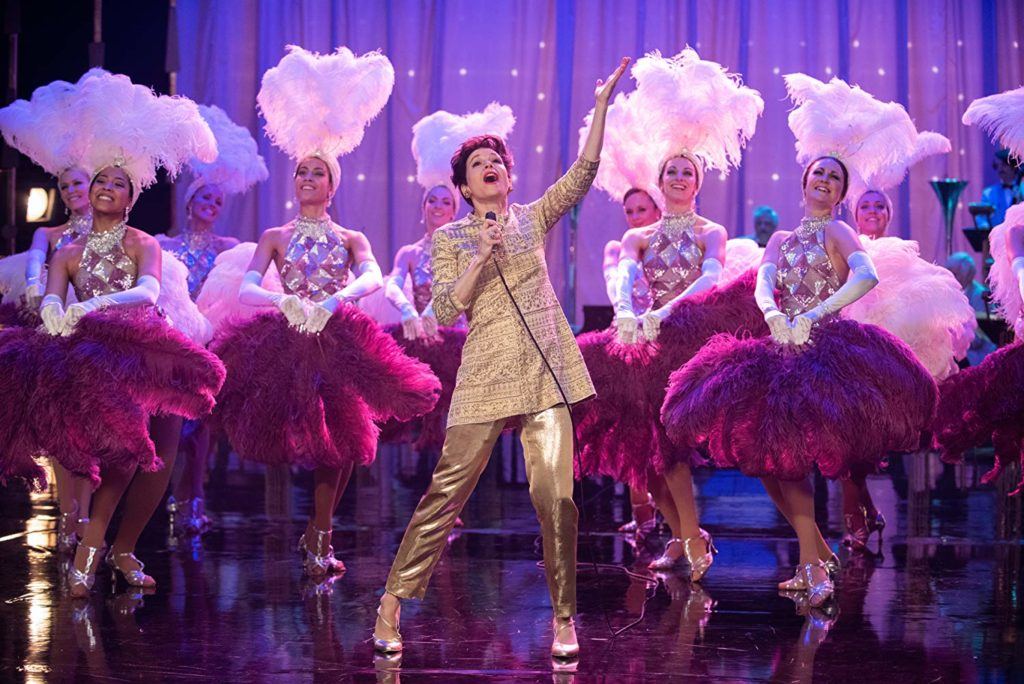Judy

Renee Zellweger stars in JUDY. (Photo: LD Entertainment)
On stage and screen, Judy Garland was known for her presence, her showmanship, and her iconic voice. Behind the scenes, her life was a trainwreck characterized by drug abuse, emotional instability, financial ruin, and inevitable tragedy.
The latter is the primary of focus of Judy, an uneven biopic of the legendary diva that benefits from a wonderfully committed performance by Renee Zellweger.
Yet the turbulence in her personal life isn’t exactly revelatory, and this glossy portrait is so eager to sympathize with its subject that it too aggressively tugs at the heartstrings.
The bulk of the film is set in 1968, long after her cinematic heyday. Zellweger plays Judy in middle age, when she acknowledges she’s past her prime — constantly chasing down pills with booze and accepting subpar cabaret gigs just to make ends meet.
She’s been through four divorces, yet remains desperate to see her two youngest children, including daughter Lorna (Bella Ramsey). So she tries to capitalize on her popularity overseas by beginning a residency at a club in London, despite a decline in her vocal dexterity.
While there, insomnia and barbiturates exacerbate her erratic behavior, despite the efforts of a handler (Jessie Buckley) to keep her under control. A surprise visit from her eventual fifth husband, Mickey (Finn Wittrock), buoys her mood but winds up fueling the downward spiral.
The film intersperses occasional flashbacks to a teenage Judy’s interactions with a young Mickey Rooney and with overbearing studio mogul Louis Mayer. It insinuates that Mayer’s abusive tactics created a sense of residual trauma that scarred Judy for life. Judy’s story exemplifies the shameful treatment of child actors during the era, but that’s largely unexplored here.
At any rate, Zellweger’s splendid portrayal doesn’t only capture Judy’s voice and mannerisms, but digs deeper to channel her compassionate spirit beneath the broken exterior. She holds her own during the singing sequences, with a rendition of “By Myself” shot in one continuous take providing a highlight.
However, the screenplay is less convincing in digging beneath the headlines and the underlying sadness. The structure becomes episodic, with a few nods to Judy’s effortless charm and charisma, to her sarcastic sense of humor, and to her generosity with her adoring fans.
British director Rupert Goold (True Story) struggles to pull everything together, as Judy hits the high notes while rarely finding a unique rhythm.
Rated PG-13, 118 minutes.